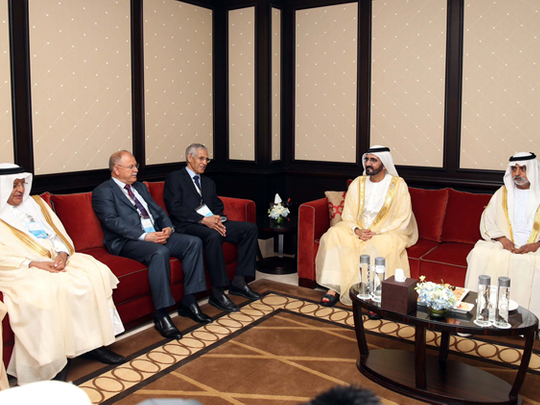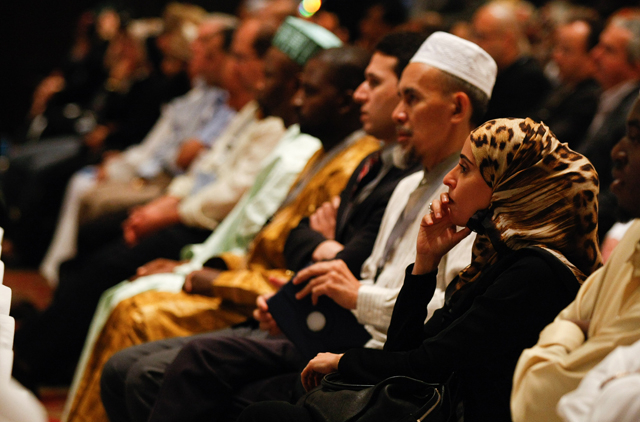
Dubai: Laws and legislations should be imposed by Arab countries to protect the Arabic language, said Arab scholars and educators during the third International Conference for the Arabic Language.
The two-day conference, which was organised by the International Council for Arabic Language in cooperation with Unesco and the Association of Arab Universities, brought Arab scholars and officials under one platform to discuss the state of the Arab language and ways to improve it.
“Between the eighth and 16th century, the Arabic and Latin languages were the only two in the world used to document science and philosophy. This is proof that the Arabic language is a global language and it is up to this generation to conserve and protect it,” said Shaikh Nahyan Bin Mubarak Al Nahyan, Minister of Culture, Youth and Community Development during his opening speech.
The conference was attended and inaugurated by His Highness Shaikh Mohammad Bin Rashid Al Maktoum, Vice President and Prime Minister of the UAE and Ruler of Dubai.
To preserve the language for future generations, Shaikh Nayhan said we must have curriculums with clear objectives that are based on thorough studies.
“We must also ensure that the Arabic language is lively so that its learners will find it both fun and beneficial. Training qualified teachers and utilising technology also help spread its usage.”
The Arabic language faces many dangers according to Dr Abdul Latif Obaid, member of the Tunisian Council of National Constituent Assembly.
“Our Arabic Language is facing dangers from foreign languages that are used in our schools and our media, slang is also a danger as it is overwhelming and slowly replacing the standard language,” said Obaid.
To help protect and preserve the language Dr Ahmad Al Dhabib, former member of the Shura Council and Editor in Chief of Arab Magazine, said legislations and laws should be imposed to protect it.
“Many Arab countries need legislations and laws to ensure that the Arab language is used in tourism and education. We are not against other languages; we are against other languages overwhelming ours.”
Coming up with legislations is not enough, Arab countries should make sure that these laws are actually implemented said Amr Mohammad Al Zain, Secretary General of the Union of Arab lawyers.
“Having unified Arab terminology is very important for Arab laws and legislation. We came up with unified terminology since 1944, but it has never been implemented. Having a unified terminology is important if we want to come up with legislations that protect the Arabic language,” he said.
Al Zain called on policy makers to implement unified Arab terminology.
Arab people have a huge role in protecting the Arabic language said Dr Abdullah Nasir, a Member of the Shura Council.
“The Arabic language is being shut out by its own people in the name of literature. We are the only people who have two types of literature the standard one and the colloquial literature. The later has taken the place of the standard language.”
Nasir also said the Arabic language is being threatened by slang language, and if the Arabic language is in threat, so is the Arab identity.
Mohammad Al Qatatsha, a member of the Jordanian House of Representatives also believes that the Arab people are the ones in charge of protecting their language.
“We are the ones who push our children to invest in the English language because we believe that it is a valuable investment. We believe we need this language because the owners of this language are the rulers of the world.”
Al Qatatsha said laws and legislations are not enough to protect the language. The Arab people should also have an effective role.












